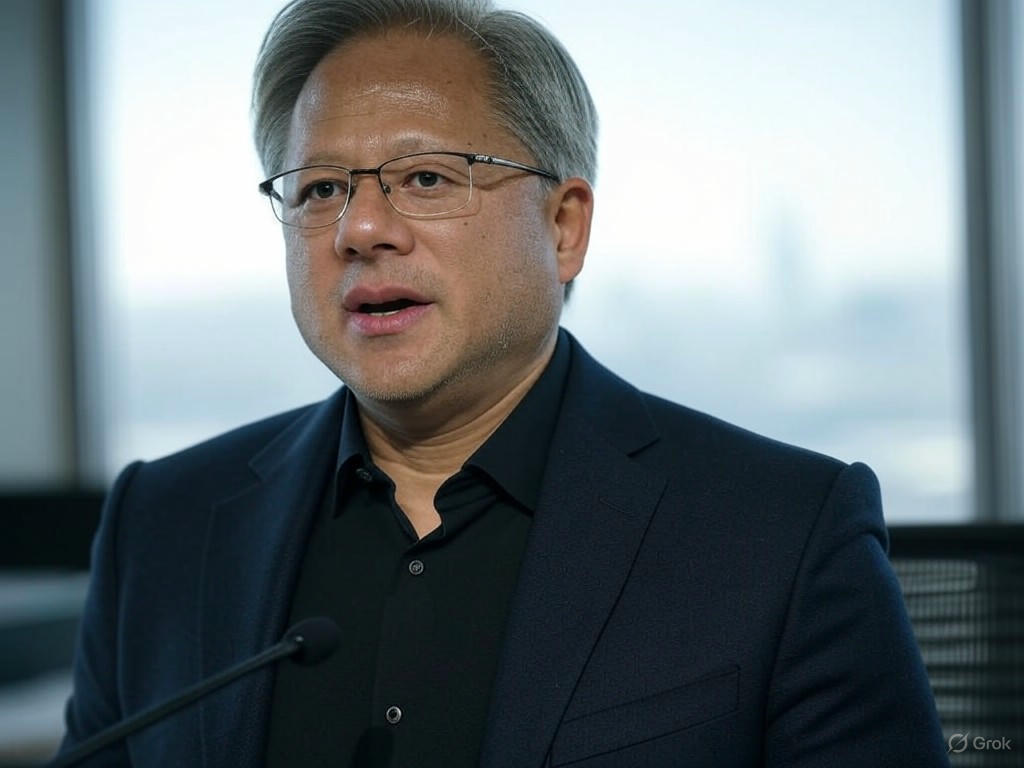Nvidia’s Shift on Quantum Computing Sparks Stock Surge for Industry Pioneers
In a surprising turn of events, Nvidia’s CEO has recently expressed a newfound optimism about the future of quantum computing, a stark contrast to previous skepticism. This unexpected pivot from one of the tech industry’s most influential leaders has sent ripples through the market, with quantum computing companies like D-Wave, Rigetti, and IonQ experiencing significant stock gains. Investors are buzzing with excitement as Nvidia’s endorsement signals a potential shift in the landscape of advanced computing technologies, hinting at broader industry acceptance and growth opportunities.
For years, quantum computing has been viewed as a niche, futuristic concept with limited near-term commercial viability. Critics, including Nvidia’s leadership in the past, often pointed to the technology’s infancy, citing challenges in scalability, error correction, and practical application. However, the latest remarks suggest a reassessment of quantum computing’s potential to revolutionize industries ranging from cryptography to drug discovery. While specifics of the CEO’s comments remain under wraps, the market reaction speaks volumes. Nvidia’s influence as a titan in semiconductor and AI technology lends considerable weight to this change of heart, prompting speculation about whether the company might explore partnerships or investments in the quantum space.
The immediate beneficiaries of this shift in sentiment are the trailblazers of quantum computing. D-Wave, known for its quantum annealing systems, saw its stock climb as investors bet on its early-mover advantage. Rigetti, a key player in quantum hardware and cloud services, also enjoyed a surge, fueled by optimism about its integrated approach to quantum solutions. IonQ, with its focus on trapped-ion quantum systems, similarly rode the wave of enthusiasm, as its innovative technology aligns with the growing interest in diverse quantum architectures. These companies, often operating in a speculative market, have long awaited mainstream validation, and Nvidia’s apparent endorsement could be the catalyst they need to attract larger investments and accelerate development.
Beyond stock prices, this development raises broader questions about the trajectory of quantum computing. Could Nvidia’s change of tune indicate upcoming technological breakthroughs or strategic collaborations? Industry analysts suggest that while quantum systems are unlikely to replace classical computing anytime soon, hybrid models combining quantum and traditional technologies could emerge as a powerful trend. Such advancements might pave the way for solving complex problems that are currently beyond the reach of even the most advanced supercomputers.
As the tech world watches closely, one thing is clear: Nvidia’s evolving stance has injected fresh energy into the quantum computing sector. For D-Wave, Rigetti, and IonQ, the spotlight offers a chance to prove their worth and push the boundaries of what’s possible. Meanwhile, investors and innovators alike are left to ponder how this pivotal moment might shape the future of computing. With momentum building, the race to unlock quantum’s full potential is heating up, promising an era of unprecedented innovation.


